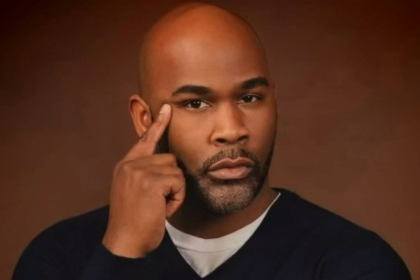
Some people rang in the new year with fireworks, singing and dancing, while others promised to improve themselves, resolving to be more decisive, more focused and more inspiring.
And let’s not forget the inauguration of newly elected officials in our cities, counties, states and the federal government. As enthusiastic politicians assume the mantle of leadership, the collective, once again, vowed to hold them accountable to promises made during the campaign. We wonder out loud how these new leaders will meet our collective societal needs. If you are like me, you will likely observe how each elected official performs in their new role. Will their leadership be a surface commitment to their constituents? Will they affect substantial change for the underserved and forgotten? Will they simply choose to ride out their terms until the next election and hope they have offended no one? Or, will their leadership show promise of transformational qualities and inspire the masses?
It is easy to stand on the outside and be critical of those who are active participants. Anyone who dares to lead must accept a few realities. Criticism is the price you pay for leadership, and the day you are unwilling to pay that price is the day you are unfit to lead. Accept it, embrace it, allow it to make you better.
I would argue that we all lead. Whether we serve in politics, business, religion, our communities or our homes, the effectiveness of our service is measured through the lens of leadership. What is leadership? In its simplest contextualization, leadership is the action of leading a group of people or an organization. However, this definition lacks the implied ethical and moral standards we commonly attribute to this art.
Understanding leadership as an art implies there is a set of skills that can be developed, nurtured and honed. Yet, even this illustration does not explain whether that leadership is transformational, transactional, situational or autocratic
As a professor, I question whether students are following my leadership and making the most of their learning opportunities. As a television and radio broadcaster, I wonder if my content moves others to action. As an editor-at-large, I ask whether I am driving creativity and productivity while improving the bottom line. And, as a father, uncle and mentor, I inquire whether my leadership properly guides those who are impressionable. In each role, I ask myself these questions and commit to learning as I journey through the avenues of leadership.
Good leaders can guide you, but great leaders inspire you.
As you begin this new year, I encourage you to take a moment and identify your leadership style. Increase your technical, cultural and geopolitical awareness and use that awareness to create a vision of what you aspire to be. Go forth confidently in the world, knowing that you are becoming uniquely qualified to lead.
Rashad Richey, Ph.D., is a radio personality, television news commentator, university professor, national speaker and editor-at-large for rolling out.
Twitter: @Rashad1380
IG: Rashad_Richey
Email: [email protected]

















